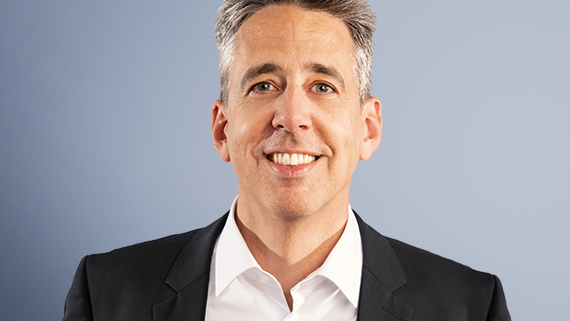21. Jun 2024
Increasing training efficiency with less environmental impact: Aviation research project funded by the federal government gets underway
- Lufthansa Aviation Training and the Swiss Federal Institute of Technology in Zurich are developing a digital twin for safety and emergency training of cabin and cockpit crews
- Project launch to develop immersive training of all training content in virtual reality on a legal basis
- The project is scheduled to run for three years and is being funded by the Federal Ministry for Digital and Transport (BMDV) with approximately 1.5 million Euros as part of the mFUND innovation initiative
Lufthansa Aviation Training (LAT) and the Swiss Federal Institute of Technology in Zurich (ETH Zurich) are launching an innovative research project on the digitalization of training content in the field of safety and emergency cabin training. On June 11 and 12, 2024, the joint kick-off event for this project took place at Frankfurt Airport with participants from all partners.
Gilad Scherpf, Senior Director Aviation Training Development
"Supported by the mFUND, LAT is investing in the future of training. In addition to the latest technology, the focus is primarily on the skills of our crews and therefore flight safety."
Today, training for airline crew members takes place almost exclusively in elaborately reproduced cabin dummies and simulators, so-called CEETs (Cabin Emergency Evacuation Trainers). Lufthansa Aviation Training currently operates 17 of these CEETs in a total of six training centers for the continuous training of 40,000 crew members of the Lufthansa Group and external customer airlines. The space requirement per device is 150 m² for a multi-level structure, and the operating costs are around €200,000 per year (average values, source: LAT). The devices are not mobile, which in some cases means long journeys for crew members and consequently unproductive downtimes for flight operations.
The aim of the D-CEET project is to fully replicate an Airbus A320 CEET as a "digital twin" based on existing aircraft and equipment specifications. The resulting data model is intended to enable fully immersive training of all relevant training content in virtual reality (VR) and additionally as a tablet-based application in accordance with the recommendations of the International Civil Aviation Organization (ICAO). In the VR environment, varied and realistic scenarios are presented with the aim of increasing training efficiency and effectiveness. At the same time, the use of equipment and the associated CO2 emissions are to be reduced.
Prof. Dr. Martin Raubal, ETH Zurich
"Digital twins have enormous potential for simulating and testing processes and actions in the real world in advance. Our project poses the exciting research question of whether and how the training requirements for the safety and emergency training of cabin and cockpit crews can be implemented in virtual reality and how efficient such training is. New technologies, such as eye tracking and physiological sensors, allow us to draw conclusions about the cognitive load on the trainees and the effectiveness of the training. These are essential and exciting questions that need to be answered before such immersive training can be used on a large scale."
The BMDV's mFUND: Since 2016, the BMDV has been funding data-based R&D projects related to digital and connected mobility of the future with an innovation initiative called mFUND. In addition to providing funding, mFUND enables professional networking among stakeholders from politics, industry, administration and the scientific community and provides open data through the Mobilithek. Further information can be found at www.mFUND.de.
About Lufthansa Aviation Training:
With its competencies in training flight and cabin crews at ten training locations worldwide, Lufthansa Aviation Training GmbH (LAT) is among the world leaders in the field of aviation training. The company is headquartered at Munich Airport and employs around 800 people at all its locations. Its client portfolio encompasses more than 250 nationally and internationally renowned airlines, among them the Lufthansa Group airlines. LAT operates close to 200 training devices. These include training aircraft for pilot training, flight simulators for all common aircraft types for pilot training, as well as emergency and service mock-ups for cabin crews.
The flight schools of the Lufthansa Group are joined under LAT’s brand European Flight Academy (EFA).
www.lufthansa-aviation-training.com
www.european-flight-academy.com
About ETH Zürich – Where future is created
Freedom and personal responsibility, entrepreneurial spirit and openness to the world: Switzerland's values are the foundation of ETH Zurich. The roots of our technical and scientific university go back to 1855, when the founders of modern Switzerland created this place of innovation and knowledge. At ETH Zurich, students find an environment that encourages independent thinking, while researchers find a climate that inspires top performance. In the heart of Europe and with a worldwide network, ETH Zurich develops solutions for the global challenges of today and tomorrow.
Press contact
Lufthansa Aviation Training GmbH
Dirk Sturny
Head of Marketing & Corporate Communications
Südallee 15
D-85356 München-Flughafen
E-Mail: dirk.sturny@lat.dlh.de
Media Center: www.lufthansa-aviation-training.com/mediacenter
ETH Zürich
Prof. Dr. Martin Raubal
Institut für Kartografie und Geoinformation
Stefano-Franscini-Platz 5
8093 Zürich
Schweiz
E-Mail: mraubal@ethz.ch


